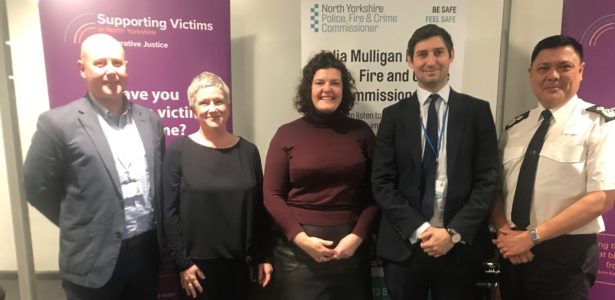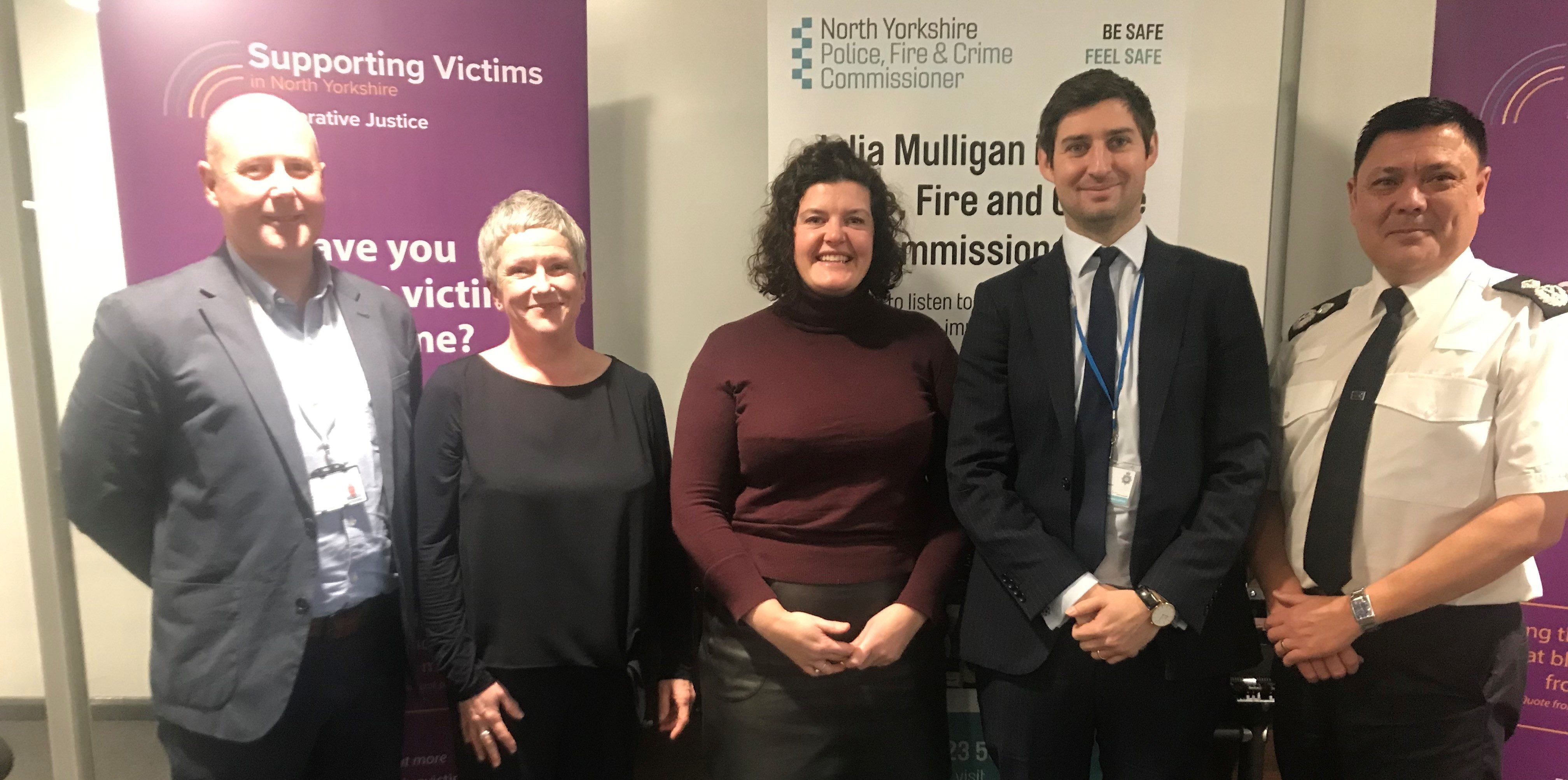More help for victims of crime – new restorative justice service launches in North Yorkshire

The aim is to bring victim and offender together outside – but alongside – the criminal justice system to reduce reoffending and give victims answers and the ability to move on by making the crime, and the fear it causes, more personal and harder to ignore.
The North Yorkshire Restorative Justice Service will be provided by Restorative Solutions Community Interest Company, commissioned by North Yorkshire Police, Fire and Crime Commissioner Julia Mulligan. This new service will have the capacity to deal with more than 300 referrals a year initially, rising to 400 by March 2022. It is hoped this will allow restorative justice to be offered in even more cases. Currently, just over 200 referrals for the solution are made every year.
At today’s launch in York, Will Naylor, Deputy Police and Crime Commissioner, was joined by North Yorkshire Police Deputy Chief Constable Phil Cain, Kate Hook, Director of Corporate Services at Restorative Solutions, and Emma, a victim who used restorative justice to cope and recover from the impact of crime.
Emma, said:
“Restorative justice has changed my life.
“It gave me an opportunity to talk about what happened using emotional words.
“For two and a half years it felt like the only words I heard were facts and evidence.
“What about me and my family and what he had done to us?
“It finally felt like my emotions had a voice that was being heard and acknowledged.
“My life kick started the minute I walked back to my car after the conference.
“I felt free of so many frustrations.”
Julia Mulligan said:
“All too often the victim of crime can be the forgotten person in the criminal justice system, having to relive the offence and unable to work out why they’ve been targeted. Restorative justice has the ability to change that – putting victims in the driving seat, allowing them to get answers and, hopefully, recover.
“By bringing the victim and offender together, sometimes through letters, sometimes in carefully controlled meetings, we can not only help the victim but also make the crime personal for an offender, who all too rarely has to face the true reality of their actions. By making it not about objects or unknowns but personal possessions and individual lives, they are much more likely to think twice and less likely to reoffend.
“That is the ultimate aim. Providing more access to restorative justice will help victims and us all by reducing crime and the fear of crime. I look forward to seeing the service develop in the years ahead.”
Restorative Solutions, which is a not-for-profit Community Interest Company, will provide the service alongside the in-house Supporting Victims Team for North Yorkshire.
Kate Hook, Director of Corporate Services said:
“Restorative Solutions are both pleased and proud to have been chosen by the PFCC to deliver the Restorative Justice Service for residents of North Yorkshire.
“We have a professional team in place who are already delivering services for victims of some of the most serious crimes.
“We have already developed close working relationships with statutory and other partners and look forward to building on these.”
North Yorkshire Police’s Deputy Chief Constable Phil Cain, added:
“We must not lose sight of the fact that behind all the reported crime, the convictions and the sentences, there are real people whose lives have been turned upside down by what has happened to them.
“They may be traumatised, their mental health may be affected and they may be finding it hard to come to terms with what has happened.
“Restorative justice aims to help alleviate some of the hurt caused to them, help them move on with their lives, and show the perpetrator the human, personal cost of their offending, which we hope, will make them think again.”
For help and more information
- If you have been the victim of crime and need help to cope and recover:
Call Supporting Victims on 01609 643 100, or visit www.supportingvictims.org - For more information on restorative justice, or to speak to the team:
Call 01423 546 175 or email RJNorthYorkshire@restorativesolutions.org.uk - To find out how restorative justice works and how it can help can, watch the specially-produced video at https://youtu.be/KLPZy2wW-x8

